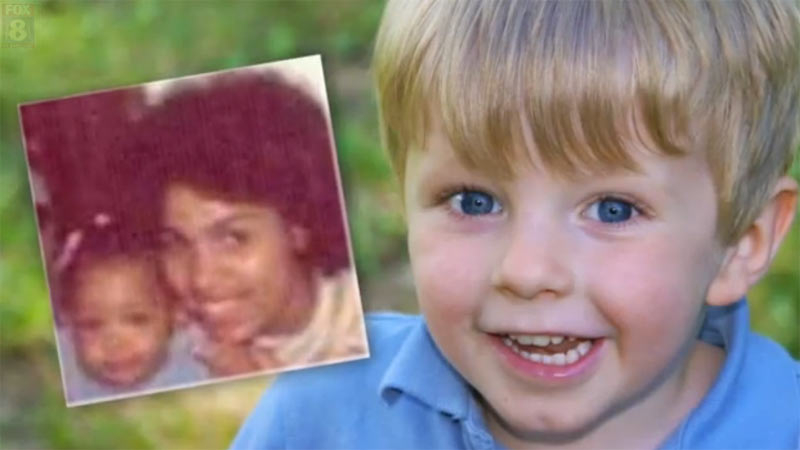“There are claims in the parapsychology field which, in my opinion, deserve serious study,” with [one] being “that young children sometimes report details of a previous life, which upon checking turn out to be accurate and which they could not have known about in any other way than reincarnation.” – Carl Sagan, The Demon-Haunted World, Random House, 1995, p. 302
Do you believe in reincarnation? Is it something that happens to our soul when we die? Do we move onto another life in a different physicality and continue our evolution as souls?
There are many different perspectives and opinions on this. There are also many religions based entirely around this concept, and amazingly enough, a lot of evidence that can directly support this theory of life after death.
Take Luke, for example, a little boy who vividly remembers what appears to be a past life as a woman named Pam, who died in the 1993.
“We shouldn’t define the soul by race or gender.”
Further Evidence About Reincarnation This is not the first time that this has occurred. There are many children and adults worldwide who claim to remember their past lives. While you could easily dismiss some of these cases, as there is no real proof, others are far more difficult to ignore. What about people like Luke, who can remember specific details about his former life, details about which he should have no way of knowing?
Here is a link for another story about a little boy who remembers so much of his past life as a World War II pilot that he actually gets reunited with his sister! There are just too many details that this boy would have had no way of knowing had he not lived the life that he describes.
Results of Reincarnation Studies This topic has been studied by numerous scientists from various academic institutions around the world, so in the interest of keeping this article brief, I will only touch upon a few examples. Worldwide, more than twenty-five hundred specific cases have been examined in great detail. Countries in which such concepts are more culturally accepted, such as in Eastern regions, tend to take their study more seriously, although cases have been documented on every single continent. For this reason, if you are interested in this topic from a scientific standpoint, we suggest you do your own research beyond what you read here.
One great example comes from University of Virginia psychiatrist Jim Tucker, who published a review of cases suggestive of reincarnation in the journal Explore in 2008.
In the article, he describes a typical reincarnation case, where subjects start reporting a past life experience. One common denominator of these cases is that they all involve children, with the average age when subjects begin to report their experiences being 35 months. The experiences reported are often detailed and extensive, and Tucker points out that many of these children show strong emotional involvement when speaking about their claims. Some cry and beg to be taken to what they say is their previous family, while others show intense anger.
“The subjects usually stop making their past-life statements by the age of six to seven, and most seem to lose the purported memories. That is the age when children start school and begin having more experiences in the current life, as well as when they tend to lose their early childhood memories.” (source)
One example Tucker describes is of an American child named Sam Taylor, who was 18 months old when he began describing his past life:
He looked up as his father was changing his diaper and said, ‘When I was your age, I used to change your diapers.’ He began talking more about having been his grandfather. He eventually told details of his grandfather’s life that his parents felt certain he could not have learned through normal means, such as the fact that his grandfather’s sister had been murdered and that his grandmother had used a food processor to make milkshakes for his grandfather every day at the end of his life.
Again, this is just one of hundreds of cases. Children have also been taken to their previous families, where they described their qualities and characteristics, as well as details of their past life together. Here is another specific case that was examined by Dr. Tucker that we wrote about a couple of months ago. And there are plenty more to choose from.
These are cases involving very young children and they offer little reason to suspect a hoax. From a scientific standpoint, however, even though these cases are intriguing, they still leave us with a problem that plagues most parapsychological phenomena today. As Tucker points out, “the processes that would be involved in such a transfer of consciousness are completely unknown, and they await further elucidation.”
Do you believe in reincarnation? Is it something that happens to our soul when we die? Do we move onto another life in a different physicality and continue our evolution as souls?
There are many different perspectives and opinions on this. There are also many religions based entirely around this concept, and amazingly enough, a lot of evidence that can directly support this theory of life after death.
Take Luke, for example, a little boy who vividly remembers what appears to be a past life as a woman named Pam, who died in the 1993.
“We shouldn’t define the soul by race or gender.”
Further Evidence About Reincarnation This is not the first time that this has occurred. There are many children and adults worldwide who claim to remember their past lives. While you could easily dismiss some of these cases, as there is no real proof, others are far more difficult to ignore. What about people like Luke, who can remember specific details about his former life, details about which he should have no way of knowing?
Here is a link for another story about a little boy who remembers so much of his past life as a World War II pilot that he actually gets reunited with his sister! There are just too many details that this boy would have had no way of knowing had he not lived the life that he describes.
Results of Reincarnation Studies This topic has been studied by numerous scientists from various academic institutions around the world, so in the interest of keeping this article brief, I will only touch upon a few examples. Worldwide, more than twenty-five hundred specific cases have been examined in great detail. Countries in which such concepts are more culturally accepted, such as in Eastern regions, tend to take their study more seriously, although cases have been documented on every single continent. For this reason, if you are interested in this topic from a scientific standpoint, we suggest you do your own research beyond what you read here.
One great example comes from University of Virginia psychiatrist Jim Tucker, who published a review of cases suggestive of reincarnation in the journal Explore in 2008.
In the article, he describes a typical reincarnation case, where subjects start reporting a past life experience. One common denominator of these cases is that they all involve children, with the average age when subjects begin to report their experiences being 35 months. The experiences reported are often detailed and extensive, and Tucker points out that many of these children show strong emotional involvement when speaking about their claims. Some cry and beg to be taken to what they say is their previous family, while others show intense anger.
“The subjects usually stop making their past-life statements by the age of six to seven, and most seem to lose the purported memories. That is the age when children start school and begin having more experiences in the current life, as well as when they tend to lose their early childhood memories.” (source)
One example Tucker describes is of an American child named Sam Taylor, who was 18 months old when he began describing his past life:
He looked up as his father was changing his diaper and said, ‘When I was your age, I used to change your diapers.’ He began talking more about having been his grandfather. He eventually told details of his grandfather’s life that his parents felt certain he could not have learned through normal means, such as the fact that his grandfather’s sister had been murdered and that his grandmother had used a food processor to make milkshakes for his grandfather every day at the end of his life.
Again, this is just one of hundreds of cases. Children have also been taken to their previous families, where they described their qualities and characteristics, as well as details of their past life together. Here is another specific case that was examined by Dr. Tucker that we wrote about a couple of months ago. And there are plenty more to choose from.
These are cases involving very young children and they offer little reason to suspect a hoax. From a scientific standpoint, however, even though these cases are intriguing, they still leave us with a problem that plagues most parapsychological phenomena today. As Tucker points out, “the processes that would be involved in such a transfer of consciousness are completely unknown, and they await further elucidation.”








